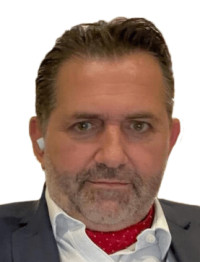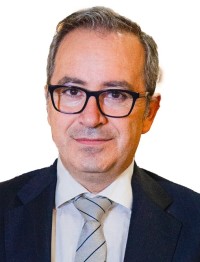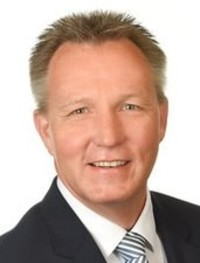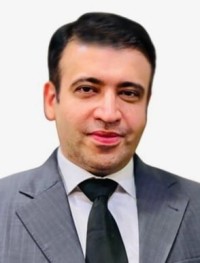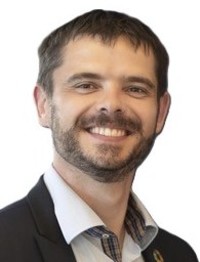Issues
Volume 25 - Issue 1, 2025
Wed, 26 Feb 2025
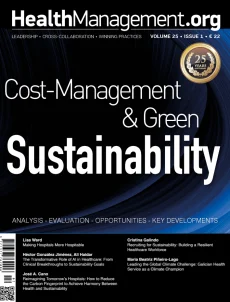
In this Issue
- Table of contents
- Editorial Board
- Download pdf (print optimised)
- Download pdf (screen optimised)
Editorial
Cost Management and Green Sustainability
READ MOREHealthcare systems around the world are increasingly pressured to reduce costs while maintaining high-quality patient care. Rising operational expenses, changing regulations and workforce challenges require a more strategic approach to financial management. Cost efficiency now extends beyond simply cutting expenses; it involves optimising processes, improving resource allocation and leveraging innovati...
Spotlight
Advancing Diagnostic Imaging with United Imaging’s Global Expansion
READ MOREUnited Imaging is expanding globally, installing cutting-edge diagnostic imaging systems in Italy, France and Lithuania. Innovations like the uCT 960+ and uMR 680 enhance diagnostic precision, patient accessibility and workflow efficiency. The company’s AI-powered technologies and commitment to healthcare accessibility are advancing both human and veterinary medicine. Through research, collaboration and...
Cover Story
Making Hospitals More Hospitable
READ MOREThe shift in modern healthcare settings and how strategic choices in elements of the built environment can contribute to patient well-being and recovery. Research suggests a strong correlation between the quality of design in healthcare facilities and patient outcomes, linked to reduced anxiety, lower blood pressure, decreased painkiller usage an...
The Transformative Role of AI in Healthcare: From Clinical Breakthroughs to Sustainability Goals
READ MOREArtificial Intelligence is reshaping healthcare by enhancing diagnostics, improving clinical outcomes and optimising operational efficiency. It enables remote patient care, streamlines workflows and reduces healthcare costs. AI also contributes to sustainability by minimising waste and energy consumption. However, realising its full potential requires integrated frameworks and multidimensional metrics to m...
Reimagining Tomorrow’s Hospitals
READ MOREHospitals protect public health but are responsible for 4.4% of global greenhouse gas emissions. Sustainable practices, such as using ScopeCO2 to measure carbon footprints, allow hospitals to identify their impact sources, structure a strategy to reduce their carbon footprint and transition towards a more environmentally sustainable facility. Practical strategies adopted by La Paz Hospital in Madrid...
Recruiting for Sustainability: Building a Resilient Healthcare Workforce
READ MORESustainable recruitment in healthcare is vital for workforce stability, cost-efficiency, and environmental responsibility. As the sector faces shortages, burnout and high turnover, hiring for sustainability integrates green healthcare, ethical employment and future-proof skills. New roles, career pathways and training programs support this shift, ensuring resilience. Healthcare leaders must adopt sustainab...
Leading the Global Climate Challenge: Galician Health Service as a Climate Champion
READ MOREThe Galician Health Service (SERGAS) is a global leader in sustainable healthcare, pioneering a Circular Economy strategy to achieve net-zero emissions by 2040. Recognised as a European Climate Champion, it focuses on reducing environmental impact, fostering innovation and training healthcare professionals. Through collaborations and pilot projects, SERGAS integrates sustainability into its operations, ali...
Digital Transformation
Why Clinicians Should Embrace Technology
READ MOREAdvances in technology are reshaping the delivery of healthcare. Digital transformation is not only vital for the long-term sustainability of the health service but failing to embrace technology risks undermining the quality of care. There are concerns that technology might erode the doctor-patient relationship; however, digital tools can strengthen it by freeing up time for meaningful interaction...
Digital Transformation of Andernach State Hospital using Hosp.Do.IT's Generic Strategy Template
READ MOREAndernach State Hospital, in collaboration with Hosp.Do.IT, developed a comprehensive digital agenda aligned with the Hospital Future Act. This initiative focused on integrating digital strategy into corporate goals, fostering user-oriented IT processes and implementing structured project management. Key outcomes include enhanced digital platform structures, streamlined processes and improved compliance mo...
Finance
The Case for Time-Driven Activity-Based Costing in Healthcare's Shift to Value-Based Care
READ MORETime-Driven Activity-Based Costing (TDABC) offers a more efficient way to manage costs in healthcare, supporting the transition to value-based care (VBC). By simplifying cost allocation through time as the central driver, TDABC ensures accurate pricing for complex services and improves operational efficiency. The method helps identify inefficiencies, optimise resources and ensure financial sustainability,...
Talent Management
Gamification: Revolutionising Healthcare Training for Leaders and Professionals
READ MOREGamification in healthcare is an effective tool for developing skills, engaging professionals and promoting a culture of excellence. Combining storytelling, practical experiences and cooperative environments, it enhances learning and well-being. Careful planning, alignment with organisational goals and continuous evaluation ensure strategic results, transforming training into opportunities for growth and i...
Enabling Radiographers for Better Imaging through VR Training in Plain Radiography
READ MOREVirtual reality (VR) training enhances radiography education by improving positioning accuracy, adaptability and cost-effectiveness. By combining traditional methods with VR, students gain better engagement, independence and skill retention. A pilot programme at UAS Campus Vienna demonstrated high usability and learning benefits. While VR is a valuable tool, it should complement rather than replace hands-o...
Purchase Optimisation
Collaboration or Centralisation in Public Procurement: Antagonistic or Complementary?
READ MORECollaboration and centralisation in public procurement within the EU play a critical role in promoting sustainable growth, innovation and efficiency. Key reforms, including the 2014 directives and Spain’s implementation, highlight progress and ongoing challenges such as transparency, competition and innovation. Achieving value-driven procurement outcomes depends on aligning leadership, strategic planning...
Future Hospital
Driving Innovation: Understanding ISO 56001 and Its Impact on Healthcare
READ MOREISO 56001 is a new standard for innovation management systems, enabling organisations to enhance innovation performance, manage uncertainty and create value. It integrates seamlessly with existing standards and is suitable for all sectors, including healthcare. By fostering a culture of innovation, it supports the adoption of new technologies like AI and telemedicine. Effective implementation requires lead...
Lean Management in Healthcare
READ MORELean management in healthcare enhances efficiency by eliminating waste, optimising workflows and increasing direct patient care time. It addresses challenges like high workloads and resource constraints while improving care quality. Implementation barriers include resistance to change and inadequate training, but strong leadership and proper tool selection facilitate success. Lean can transform healthcare...




